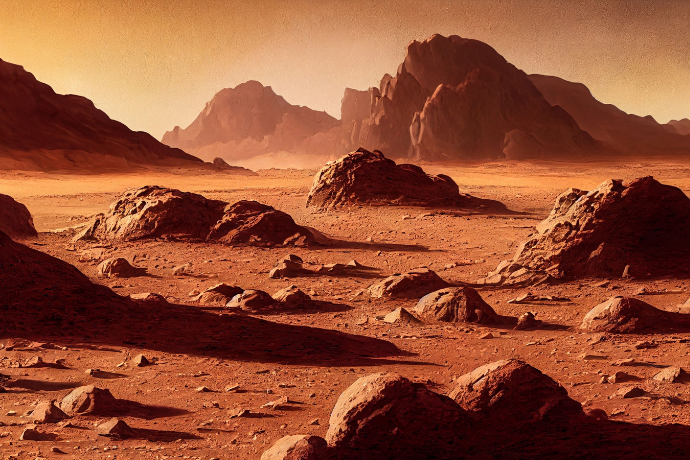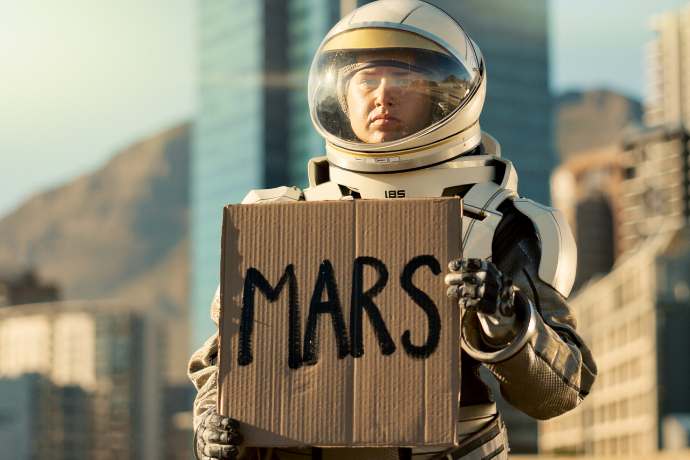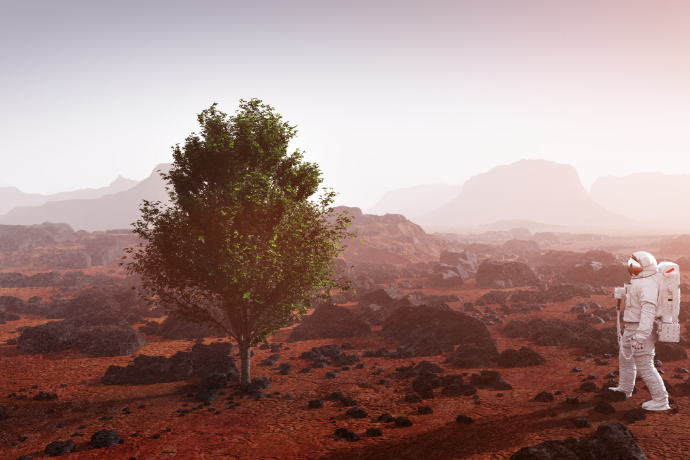 SPEAKERS
SPEAKERS
As technology advances, Mars colonization nears reality. What challenges and opportunities await in this bold new era of space exploration?

The dream of expanding human civilization beyond Earth has captivated our imagination for generations. As we stand on the brink of a new era in space exploration, the colonization of Mars represents humanity's most ambitious endeavor yet. This red planet, our closest planetary neighbor, holds the key to our species' interplanetary future.
For centuries, we've gazed at the red dot in our night sky, wondering about the possibilities it holds. Today, our technological capabilities and scientific understanding have brought us closer than ever to making these dreams a reality. The prospect of establishing a human presence on another planet marks a pivotal moment in our species' evolution.
The question of "can Mars be colonized" has moved from science fiction to scientific possibility. Space agencies and private companies worldwide are developing groundbreaking technologies and strategies to make this dream a reality. The path to a colonized Mars requires unprecedented collaboration and innovation.
Space pioneers and visionaries, including many best space speakers, are leading the charge in this extraordinary mission. Their expertise and passion inspire new generations to embrace the challenges of space exploration.
The remarkable journey towards Mars colonization represents a confluence of human ingenuity, technological advancement, and unwavering determination. Scientists and engineers are working tirelessly to develop revolutionary propulsion systems and life-sustaining technologies that will enable safe travel through the harsh environment of space.
Private companies are revolutionizing space travel with reusable rockets and innovative spacecraft designs, dramatically reducing the cost of reaching Mars. This commercial space race has accelerated technological development and created new possibilities for regular missions to the Red Planet.

"How long will it take to colonize Mars" is a question that sparks endless discussions. While estimates vary, experts suggest that the first human settlement could be established within the next few decades. This timeline represents humanity's most accelerated space endeavor.
The journey begins with comprehensive robotic exploration missions, meticulously mapping resources and identifying potential settlement locations. These unmanned missions will lay the groundwork for human arrival, gathering crucial data about the Martian environment.
Each phase of this ambitious timeline builds upon previous successes, creating a robust foundation for sustainable human presence. The establishment of basic infrastructure, including power generation systems and communication networks, will precede human arrival.
The first human missions will focus on creating temporary bases, testing life support systems, and validating our ability to survive on the red planet. These pioneering missions will transition into permanent settlement construction, gradually expanding our footprint on Mars.
Understanding "how to colonize Mars" involves mastering multiple scientific disciplines. From developing sustainable life support systems to utilizing Mars' natural resources, each aspect requires innovative solutions and breakthrough technologies.
"How will Mars be colonized" depends on our ability to overcome significant challenges. These include radiation protection, water extraction, food production, and maintaining human health in reduced gravity conditions.
Scientists are developing revolutionary habitation systems that can withstand Mars' harsh environment. These enclosed ecosystems must maintain perfect atmospheric conditions while protecting against cosmic radiation and extreme temperature fluctuations.
Water extraction technologies focus on processing Mars' polar ice caps and subsurface deposits. Advanced drilling and purification systems will ensure a sustainable water supply for drinking, agriculture, and oxygen production.
The development of Martian greenhouses represents another crucial scientific achievement. These specialized facilities will use hydroponics and artificial lighting to grow food crops in the planet's reduced sunlight conditions.
Medical science also plays a vital role in maintaining colonist health. Researchers are developing treatments for bone density loss, muscle atrophy, and psychological challenges associated with isolated living in an alien environment.

The benefits of Mars colonization extend far beyond scientific achievement. This endeavor will drive technological innovation, create new industries, and unite humanity under a common goal that transcends national boundaries.
The societal impact will fundamentally reshape our approach to education, career paths, and cultural perspectives. New fields of study will emerge, preparing future generations for interplanetary challenges and opportunities.
Our social structures will evolve to accommodate long-distance relationships between Earth and Mars, fostering new forms of communication and community building. The psychological resilience required for Mars missions will advance our understanding of human adaptation and mental health.
Economic systems will transform as space-based industries create unprecedented job opportunities and investment channels. The development of Mars-focused technologies will accelerate solutions for Earth's environmental challenges, demonstrating how space exploration directly benefits our home planet.
This transformation will also reshape our philosophical outlook, expanding human consciousness beyond Earth-centric thinking. As we establish communities on Mars, we'll develop new governance models and social frameworks that could revolutionize how we organize our societies on Earth.
As we work towards establishing a permanent presence on Mars, we're not just creating a backup plan for humanity. We're developing solutions that will benefit life on Earth and open new frontiers for human achievement and discovery.
The colonization of Mars represents more than just a technical challenge - it's a testament to human determination, creativity, and our unwavering spirit of exploration. Together, we stand ready to write the next chapter in human history among the stars.
This ambitious journey will reshape our understanding of what it means to be human. By establishing sustainable colonies on another planet, we're proving that our species' potential knows no bounds. The innovations we create will revolutionize everything from agriculture to energy production.
Our future Mars settlers will pioneer new ways of living that could transform life on Earth. They'll develop revolutionary methods for resource conservation, waste management, and sustainable architecture that we can apply to our home planet's challenges.

The colonization of Mars is more than just an audacious dream—it is a defining step toward humanity’s future as a multi-planetary species. This journey will push the boundaries of science, technology, and human resilience, inspiring new generations to think beyond Earth’s limitations. While the challenges are immense, so are the opportunities for innovation, collaboration, and exploration. As we take these first bold steps toward interplanetary civilization, we are not only securing humanity’s long-term survival but also unlocking new possibilities that will transform life both on Mars and on Earth. Our voyage to the Red Planet marks the beginning of a new era—one that redefines what it means to be human in the vast expanse of the cosmos.